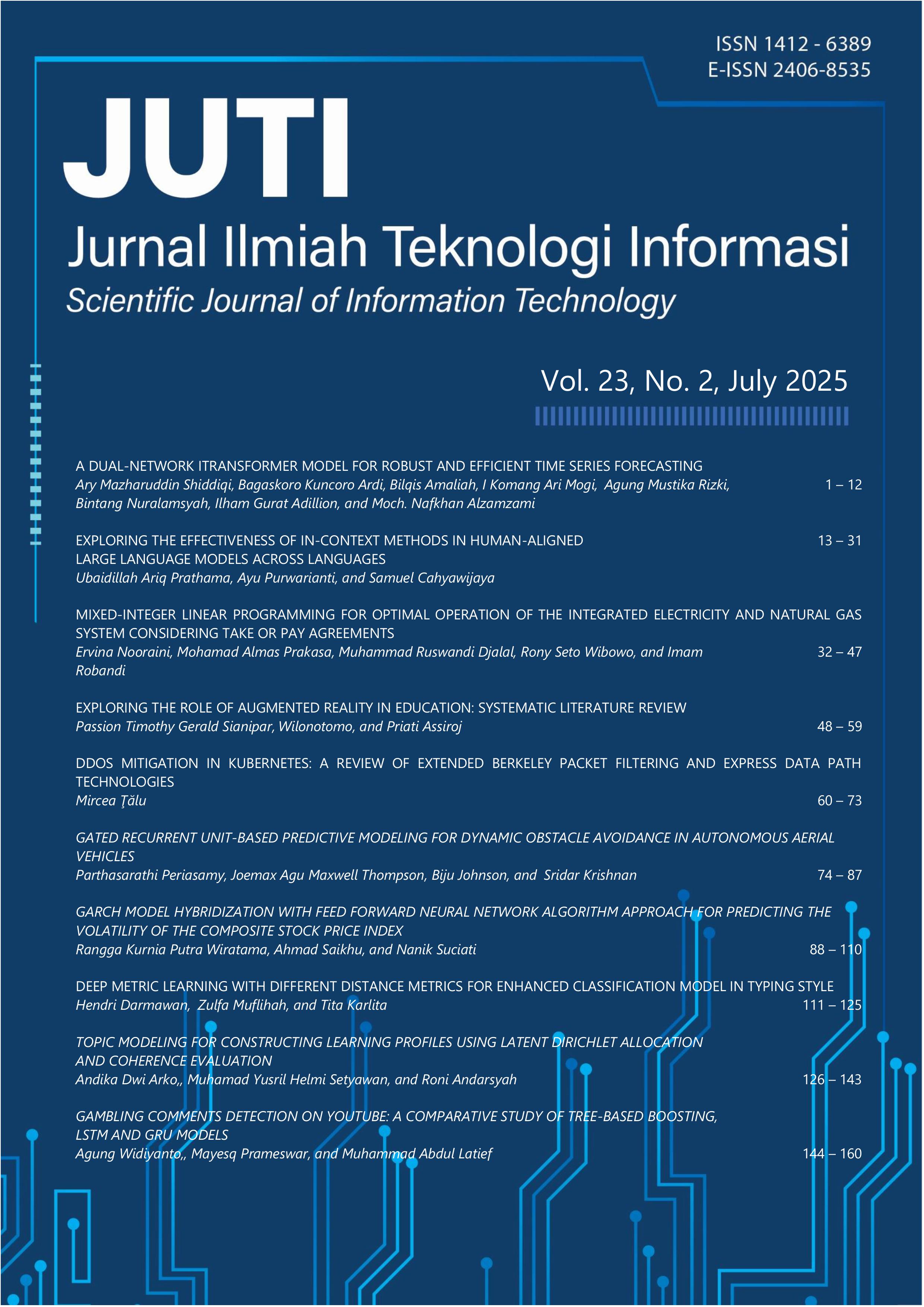Topic Modeling for Constructing Learning Profiles Using LDA and Coherence Evaluation
Abstract
Understanding individual learning patterns is important for supporting effective learning strategies in the digital education ecosystem. This study proposes a topic modeling approach using the Latent Dirichlet Allocation (LDA) algorithm to form learning profiles based on student interaction data from EdNet-KT1. The dataset includes 153,824 interactions with 11,613 questions, which were converted into semantic tag-based pseudotexts. Modeling was performed with 20 topics, which were selected as a compromise between semantic quality (coherence score 0.6688) and model readability, although the highest coherence score appeared with a larger number of topics. Each question is linked to a dominant topic, and student accuracy is calculated to form a student-topic performance matrix. The results of the analysis show that 66% of students mastered more than five topics, reflecting a broad range of knowledge. Visualization with heat maps, radar charts, and line charts provides a detailed overview of each individual's strengths and weaknesses. Segmentation was performed using the K-Means algorithm and produced four clusters based on student performance distribution. Adaptive learning recommendations are compiled based on an accuracy threshold of < 0.5 and a number of interactions > 10. Topics_13, topics_10, and topics_12 were identified as the most challenging topics. The results of this study indicate the potential of LDA-based approaches and clustering as analytical tools for shaping more personalized and contextual learning systems. Further research could explore sequential modeling and experimental validation of the effectiveness of recommendations
Downloads
Downloads
Published
Issue
Section
License
Copyright (c) 2025 Andika Dwi Arko, Muhamad Yusril Helmi Setyawan, Roni Andarsyah

This work is licensed under a Creative Commons Attribution-ShareAlike 4.0 International License.
All papers should be submitted electronically. All submitted manuscripts must be original work that is not under submission at another journal or under consideration for publication in another form, such as a monograph or chapter of a book. Authors of submitted papers are obligated not to submit their paper for publication elsewhere until an editorial decision is rendered on their submission. Further, authors of accepted papers are prohibited from publishing the results in other publications that appear before the paper is published in JUTI unless they receive approval for doing so from the Editor-in-Chief.
JUTI open access articles are distributed under a Creative Commons Attribution-ShareAlike 4.0 International License. This license lets the audience to give appropriate credit, provide a link to the license, and indicate if changes were made and if they remix, transform, or build upon the material, they must distribute contributions under the same license as the original.












